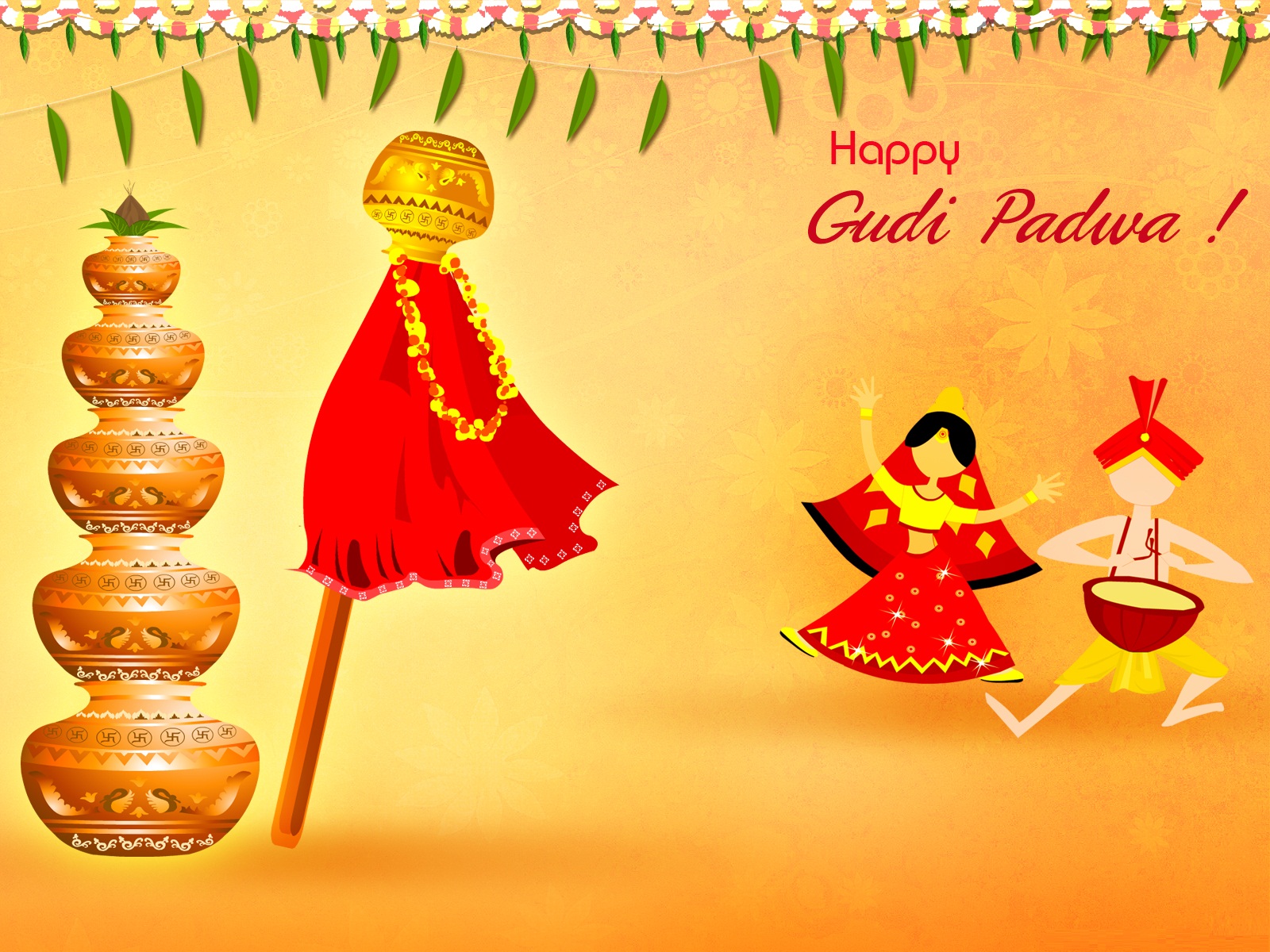
Gudi Padwa, the first Holy festival which marks the beginning of the New Year, new month and new day for the Hindus falls on Chaitra Shukla Pratipada. (8th April 2016) It is known as Gudhi Padwa (in Maharashtra), Ugadi (in Karnataka, Andhra Pradesh). [In other parts of country it is celebrated during Nau Roz (Kashmir), Baisakhi (Punjab), Cheti Chand (Sindhi), Naba Barsha (Bengal), Goru Bihu (Assam), Puthandu (Tamil Nadu), Vishu (Kerala)] On this very day Lord Brahma created the Universe. Therefore for Hindus, this day carries special importance. The day is celebrated with an auspicious bath, followed by decorating the doorway with a ‘toran’, performing ritualistic worship and hoisting the Gudhi.
Gudhi Padwa is celebrated as Ugadi (or Yugadi) in Karnataka and Andhra Pradesh. The day, begins with ritual showers (oil bath) followed by pooja to god and Panchanga Shravana. Houses are decorated with Mango Leaves and Rangoli and everyone in the family wear new clothes and celebrate the festival by wishing each other New year greetings.
The eating of a specific mixture called Bevu-Bella (Neem and Jaggery) in Kannada, symbolizes the fact that life is a mixture of good and bad, Happiness and Sorrow. Eating Neem and Sweet Jaggery means one need to take both Good and Bad or Happiness and Sorrow should be accepted together and with equanimity through the New Year. The special mixture consists of:
Neem Buds/Flowers for its bitterness, signifying Sadness
Jaggery which is sweet, signifying Happiness
In Karnataka a special dish called Obbattu or Holige (Puran Poli), is prepared on this occasion. It consists of a filling (gram and jaggery/sugar boiled and made in to a paste) stuffed in a flat roti like bread. It is usually eaten hot/cold with ghee or milk topping or coconut milk at some places of Karnataka.
To ensure that the beginning of the New Year begins on an auspicious note, celebrate it according to the Hindu scriptures, on Chaitra Shuddha Pratipada as per the Hindu lunar calendar. This date is glorious in all ways – as per the cycle of Nature and it also has historical and spiritual significance. All this contributes to endowing the one celebrating it, as per the Hindu scriptures, with several benefits. It is the duty of each individual to arrest the loss being caused to society due to blindly emulating Westerners.
‘Gudi Padwa’ is the day on which the universe was created. Since on this day Shri Brahma created the universe and the Satyayug began, it marks the commencement of the New Year.
The Divine consciousness emanating during sunrise, absorbed at that time lasts longer. Thus the Gudi should be worshipped within 5-10 minutes after sunrise !
On Gudi Padwa, the waves consisting of the fire principle (Tej tatva) and the creative Prajapati waves are activated on a large scale. The Divine consciousness emanating during sunrise, absorbed at that time lasts longer. This consciousness is stored in the body cells and is used as required. Hence the Gudi should be worshipped within 5-10 minutes after sunrise.






Be the first to comment